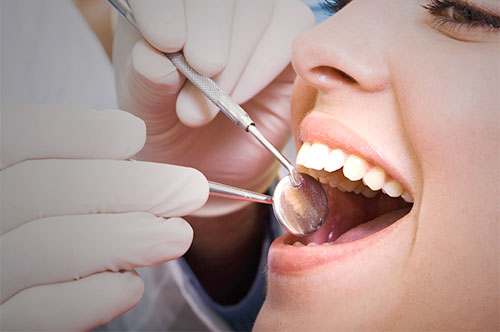
Your nighttime routine does more than help you wind down, it also plays a powerful role in protecting your teeth. While you sleep, your mouth becomes more vulnerable to harmful bacteria, dry conditions, and pressure from habits you may not even realize you have. The hours you spend sleeping are a key time for your smile’s health, and what you do before bed with your oral care habits can make a lasting difference.
The good news? A few simple changes can help prevent tooth decay, enamel damage, and even jaw discomfort without adding a lot of time to your evening. Let’s look at smile-friendly bedtime habits that help keep your teeth healthy while you rest.
1. Brush and Floss After Your Last Snack or Drink
Brushing and flossing before bed is one of the most important habits for maintaining oral health. Your saliva production slows down while you sleep, so your teeth lose some of their natural protection against bacteria. Going to bed without cleaning your teeth allows plaque and food particles to sit on your enamel all night.
Make sure you brush for a full two minutes using fluoride toothpaste, and don’t forget to floss. If you’re someone who snacks or sips on drinks after dinner, be sure to brush after your final food or beverage—not before—to avoid undoing your routine.
2. Skip Late-Night Snacks and Sugary Drinks
Late-night eating can be tough on your teeth. Sugary and acidic foods fuel the bacteria that cause decay, and if you go to bed shortly afterward, your mouth doesn’t have enough time to neutralize the acids.
Try setting a “cut-off time” for snacks and drinks (besides water), and stick to it. If you do need something, choose a smile-safe option like water or a small piece of cheese. Avoiding food close to bedtime also reduces the risk of acid reflux, which can erode enamel.
3. Wear Your Nightguard or Retainer Consistently
If your dentist has recommended a nightguard for grinding or a retainer to maintain alignment, wearing it consistently is essential. These devices protect your teeth from pressure, fractures, shifting, and enamel wear, especially while you sleep, when you’re unaware of clenching or grinding.
Keep your nightguard or retainer somewhere visible and easy to reach as part of your nighttime routine. If it feels uncomfortable or no longer fits properly, bring it in for an adjustment. A well-fitting appliance is more likely to become a habit—and a lasting one at that.
4. Keep Dry Mouth in Check
Dry mouth during sleep is more common than you might think, and it can lead to increased plaque buildup, tooth decay, and bad breath. If you breathe through your mouth or take medications that reduce saliva, you may be at higher risk.
Combat dry mouth by sipping water before bed, using a bedside humidifier, and avoiding alcohol, caffeine, or mouthwash with alcohol. Your dentist may also recommend products if dry mouth is a regular issue for you.
Create a Wind-Down Routine That Includes Oral Care
The more structured and relaxed your bedtime routine is, the more likely you are to stick with healthy habits—including those that benefit your teeth. Pair brushing and flossing with something enjoyable, like listening to music or doing a quick skincare routine, to make it feel less like a chore.
Building good oral care habits into your nightly wind-down makes it automatic over time. And when your mouth feels clean and refreshed before bed, you’ll sleep better knowing your smile is protected
Call Keene Smiles at 720-599-4479 to schedule an appointment in Lafayette, CO. You can also request an appointment online.




